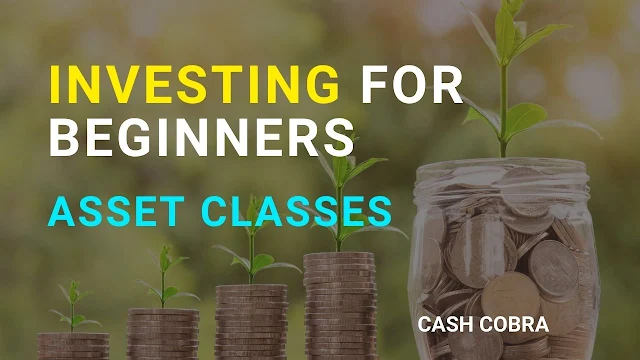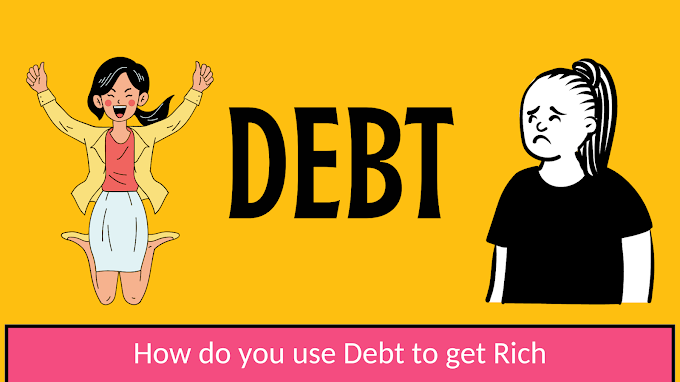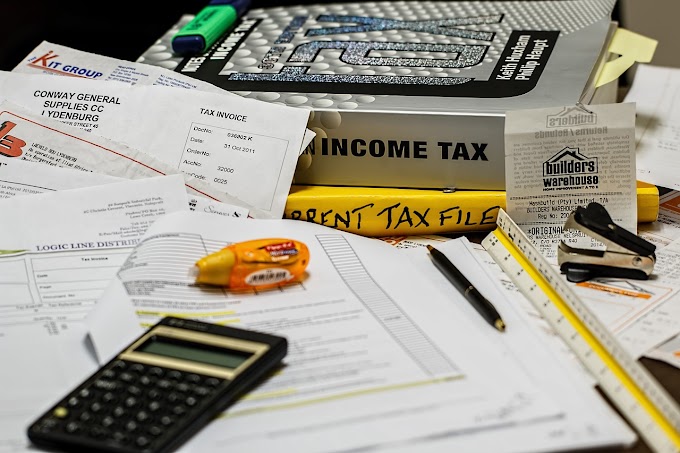For those who think that investing is risky guess what
A 9 to 5 is just as risky also.
Your job can fire you tomorrow and then there are no guarantees of winning nine to five. So let's open our horizon and let's have multiple streams of income which is like a buzz phrase right now.
Before we get into the actual asset classes understand there are two different types of investment strategies the two different strategies are capital gains and cash flows.
Capital Gains
This would typically include your growth stocks and people who flip houses things of that nature. In this situation, the economy has to be appreciated if you're in a depreciating economy you are lucky.
This is what happened to people in 2008 where they were flipping houses they bought a property fixed it up except the houses were going down so in that situation you're very screwed.
Cash Flows
For example, a dividend stock where you'll buy the stock. Maybe it doesn't grow year over year dramatically but you do get a consistent payout most likely quarterly but there are monthly payouts as well and you just hold that stock and collect those payments.
The dividend that you receive is cash flow you could enjoy that money right now. You don't have to wait until you retire and you don't have to sell it's yours alright.
Assets
What are the four asset classes?
They are.
- Paper Assets
- Business
- Real Estate
- Commodities
We mostly all hear about the paper assets so I'll just get into that. So we can move on.
1. Paper Assets
With these assets, they are not in your control.
You can buy a certain airline stock tomorrow they could drag somebody off the airplane and then your stock drops to 30% and you had nothing to do with that.
If you're looking for an investment that has absolutely no control then this is one of your options, not something I typically suggest because it's very heavily based on consumer confidence and particular situations right.
People will argue oh well you can get mutual funds you can get index funds and those are a mix of everything and that is true but again it's based on consumer confidence. If people lose confidence the stock market as a whole will go down.
Financial advisors will sell this to you the most because they do not have a fiduciary duty to you in most cases which means they don't have to work in your best interests. They could just work to make them money if they sold you something that is absolutely terrible for you oh well you should have registered in your contract.
When you are investing in paper access it's very important to make sure that you are doing your due diligence, you're reading your prospectus, you're seeing what kind of fees you are getting with these because there are a bunch of fees and they're hidden fees within the hidden fees.
Please make sure you're very well educated not only on your particular investment but on the economy in general because you want to make sure that you're not investing in something that is looking a little bit weak in the market.
What's stocks that can enjoy capital gains which would be the growth stocks. When you're pretty much buying it and hoping that the price goes up. So that you can sell it.
You can also get cash flows like I mentioned earlier with dividends if you're buying stocks that may not appreciate as much but they do pay a consistent dividend quarterly, monthly whatever.
2. Business
I see too often people just jumping headfirst into a business without understanding their market without understanding the need of the customer and satisfying that need.
When you're looking for a business it's about problem-solving and answering questions that people have if you're providing services for example so you can't just throw all your money into something.
Because you want to make sure you're making a profit but with this, your earning potential is pretty much limitless it's all dependent on how much work you're putting in and how well you know your business, and how good you are at your craft.
Conversely, with a nine-to-five they're gonna pay you whatever they can it's not necessarily what you're worth but it's what would make them the best profit remember companies that are hiring you for a 95 they're in the business to make money.
So if they're going to pay you less than what you're worth they will do that so they can have a positive bottom line.
With your own business, you will get paid what you're worth what work you put in there, and how well you satisfy your customers. It may take a lot of work in the beginning but once you structure your business in a way that you would know you're making profits and you can scale.
The earning potential again it's all up to you you can end up hiring people and you can remove yourself from that business and just reap all the benefits and still maintain some flexibility in your life to where you can do whatever you want to do.
If you know that's not for you another thing you can do is invest in somebody else's business. Let's say you have somebody who has a successful bakery or they have a nail salon and you want to invest in them.
You can say hey listen I know you need some new chairs for your nail salon, I know you need whatever it is that you need I will give that to you in exchange for 5% of your income.
The money you would make would depend on a case-by-case basis that's something where you have to actually talk to the owner talk to whoever it is. You need to talk to and figure out something that would work for both parties.
In this value wouldn't have much control or maybe you would again it depends on the situation but you would so benefit from getting a consistent cash payout.
3. Real Estate
- How much money you have?
- How involved you want to be?
If you are somebody who doesn't really have that much money right now but you just want to get into real estate you can consider investing in what we call a REIT which stands for a real estate investment trust.
For this investment basically, you'll invest in a stock. It's kind of a mix of real estate and the stock market because you'll buy however many shares you want to buy and the REIT controls all the real estate for you.
Within REIT you'll have many different real estate projects.- Buying hold properties
- Holding maybe multifamily housing
- Commercial buildings
- Collecting the rent
It's different depending on what wheat you invest in but the idea is they'll have the properties they'll manage all the real estate investments for you and then they'll pay out a dividend.
I've seen REITs as low as $20 to $23 per share. You'll just do your research and find the one that's best for you. I am NOT advising anybody to buy anything, in particular, I am simply informing the public.
It's a very low barrier to entry. You can buy however many shares you want to. Depending on what company you go with you can get a consistent dividend of maybe eight percent return or more who knows do your research.
With REIT stocks typically you will not see major fluctuations in their pricing. It stays pretty consistent because you get a consistent dividend.
One thing about dividends is that they are taxed at ordinary interest rates. There are ways to get around this but typically if you're getting a dividend you will have to pay it at the tax rate that you're getting currently which is not the most advantageous thing you want to pay as least taxes as possible right.
Similar to investing in REIT stocks. There is crowdfunding, not my personal favorite but it's the idea of everybody putting their money into a business or a company and they will also invest that money for you.
You don't have any control over what access they choose when you are doing crowdfunding and there's very low liquidity. A lot of times you'll have to put your money in there and you can't take it out for a set amount of time.
There are high fees or certain tax treatment with the money that you do get so you have to be very aware of the tax disadvantages when you're thinking about REITs and crowdfunding.
Alternatively, you can own the asset yourself and in some cases, you can put down as low as three and a half percent or maybe even zero if you've worked in the military. I think if you're a teacher you get pretty low percentages down to.
Do your research I know I've been saying that a lot take a shot every time. Only the asset is the best option because you have full control. Again your earning potential was up to you however many houses you want to purchase how involved do you want to be do you want to do a short-term rental which is like an Airbnb or a long-term rental which is having a consistent rent are there for the year or once a month.
If you want to get in but you're maybe a little bit afraid of the risk you can do what they call house hacking which is buying a multi-family property. If you want to get the typical home 30-year fixed-rate mortgage you can get up to four units live in one of the units and rent the other ones out.
If you buy properly your tenants could be paying your mortgage for you and in some cases, you might even be making money which means no rents, no payments you just make a bank.
You can have everything paid for you and there are so many tax advantages to owning real estate you can depreciate the property.
In some cases even though you made maybe $10000 on paper it could look like you made nothing. This is what the rich do I think it's something like 90% of millionaires own real estate and that tells you something.
4. Commodities
People like purchasing gold and silver because they consider that actual money. It's a store of wealth it'll keep up with inflation and it holds its value.
One thing to watch out for when you're thinking about investing in precious metals is there are stops for these precious precious metals but you do not actually own the gold.
If you're thinking about purchasing gold you should get the physical asset because that is the wealth in your hands you have absolute control over it in a situation where maybe money is not what it is now.
Remember nothing is forever. We might have paper currency right now but there's no guarantee that we'll have paper currency in the future.
I've been going there portfolio is something that is a good idea and also thinking about at least invest in commodities have your own crops have been oil things like that are pretty consistent.
I will be doing a detailed article on each asset class so let me know in the comments which one you're most interested in and I will do that one first.
I want to remind everybody to please invest savings is not enough in this climate because our dollars are worthless year over year.
When you hear inflation that is losing your purchasing power what that means is your money is becoming worthless year after year. You can buy fewer things with your money so you need to take that money and put it in something else.













